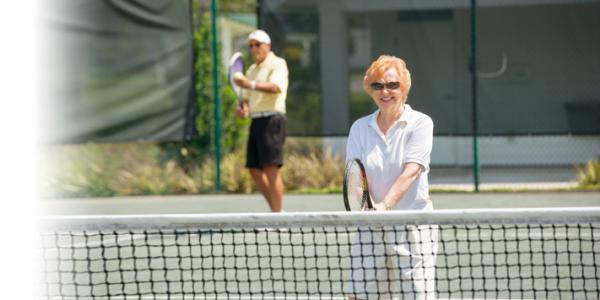


Prolonged exposure to high temperatures can make you susceptible to heat exhaustion and heat stroke. Did you know that it only takes 10-15 minutes for your internal body temperature to increase and cause heat-related symptoms? Whether you're hiking, camping, playing tennis, or even just enjoying a picnic or potluck with friends, it’s important to prepare beforehand so you can avoid getting sick.
Watch for symptoms. The early signs of heat exhaustion (which is a precursor to heat stroke) include:
If you notice any of these symptoms, find a cooler environment to rest. Drink plenty of fluids and change clothing to lighter layers. Keep a close eye on the person experiencing these symptoms, as it could turn into heat stroke. Common symptoms of heat stroke include:
If you or someone you are with has these symptoms, it's important to cool down immediately. Submerge in water, take off layers of clothing or find shade. Heat stroke is serious, so you should seek medical assistance as soon as possible.
To help avoid problems, a few precautions can go a long way:
While hot summer days can be dangerous, if you're well prepared, your outdoor activities can remain fun and enjoyable. Keep an eye on your weather app and do research on locations of camp sites, hiking trails, concert venues and more before traveling. Some locations may contain water sources, but it's always best to pack your own.
This article first appeared in the July/August 2022 edition of the HealthPerks newsletter.

Identify your risk factors and what to do if you are at risk.